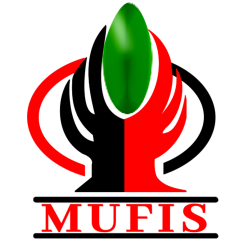Malawi Union for Informal Sector is the organization established to organize, promote, protect, negotiate on issues dealing with the rights of informal economy workers and also train members on leadership, negotiations skills, human rights, savings and credit skills, HIV/AIDS prevention and business management trainings. The workers in this sector include hawkers, market and street vendors, artisans, small veranda (homes) business, informal cross borders traders, domestic, tea smallholder farmers, other informal economic workers, etc
Due to Privatizations, Globalization and many factors that led to the retrenchments’, ‘redundancies’, ‘lay-offs’ or ‘right-sizing the public service reforms, downsizing have reduced employment and retrenchments of workers in the formal sector in most of the countries in Africa, including Malawi, a massive of ex-employees have had an exodus into the informal sector jobs just for a living. In additional the magnitude of unemployment has affected the school levers that have also joined in the informal economy sector. Recently; there are also a lot of people who are on full time formal employment but could not make ends meet due to financial crisis have also joined in the informal on part time and some have employed workers to trade for them. This resulted into the formation of Malawi Union for the Informal Sector (MUFIS) in the year 2000 and registered 2004 by government Ministry of Labour and vocational Training. Since the formation of this Union in the stipulated year, the following activities are being carried out in line with the following objectives:
1. To organize and build effective Union democratically
2. To protect the rights and interests of members.
3. To promote full participation of members in all activities of the Union especially issues to deal with human rights
4. To promote legislation in the interest of members.
5. To raise funds, in order to engage in union education, social, business training, leadership, gender issues, human and workers’ rights, HIV/AIDS, child rights and child labour awareness and mutual welfare for the advancement of member’s economic security.
6. To negotiate with institutions for empowerment of the members through loans or donations.
7. To regulate the relations and settle disputes whenever possible and to promote unity between Its members, its members and organisations or its members and other people.
It is evident that increasing expansion of the informal economy has become a key feature of the labour market in Malawi; according to Malawi Labour Force Survey (MLFS) of 2013 there are 89% workforce in informal.
In contrast to the formal economy, generally the informal economy activities in Malawi are increasing every day while the formal is shrinking every day. At first the people who were in the informal activities were very few but now with the scarcity of the employment in the formal, most of the people are employed in the informal due to the Structural Adjustment Policies (SAPSs), privatization and financial crisis.
Now Malawi is also affected with covid 19 pandemic which has affected lives of people and businesses. Informal economy workers have been heavily affected socially and economically considering that they are not well sensitized on the dangers of covid 19 and that there is no business due to partial lockdowns and people who buy from them are discharged /terminated from their work. To make matters worse there is no cushion to fall on for informal workers.
About Us
Malawi Union for Informal Sector About Us
